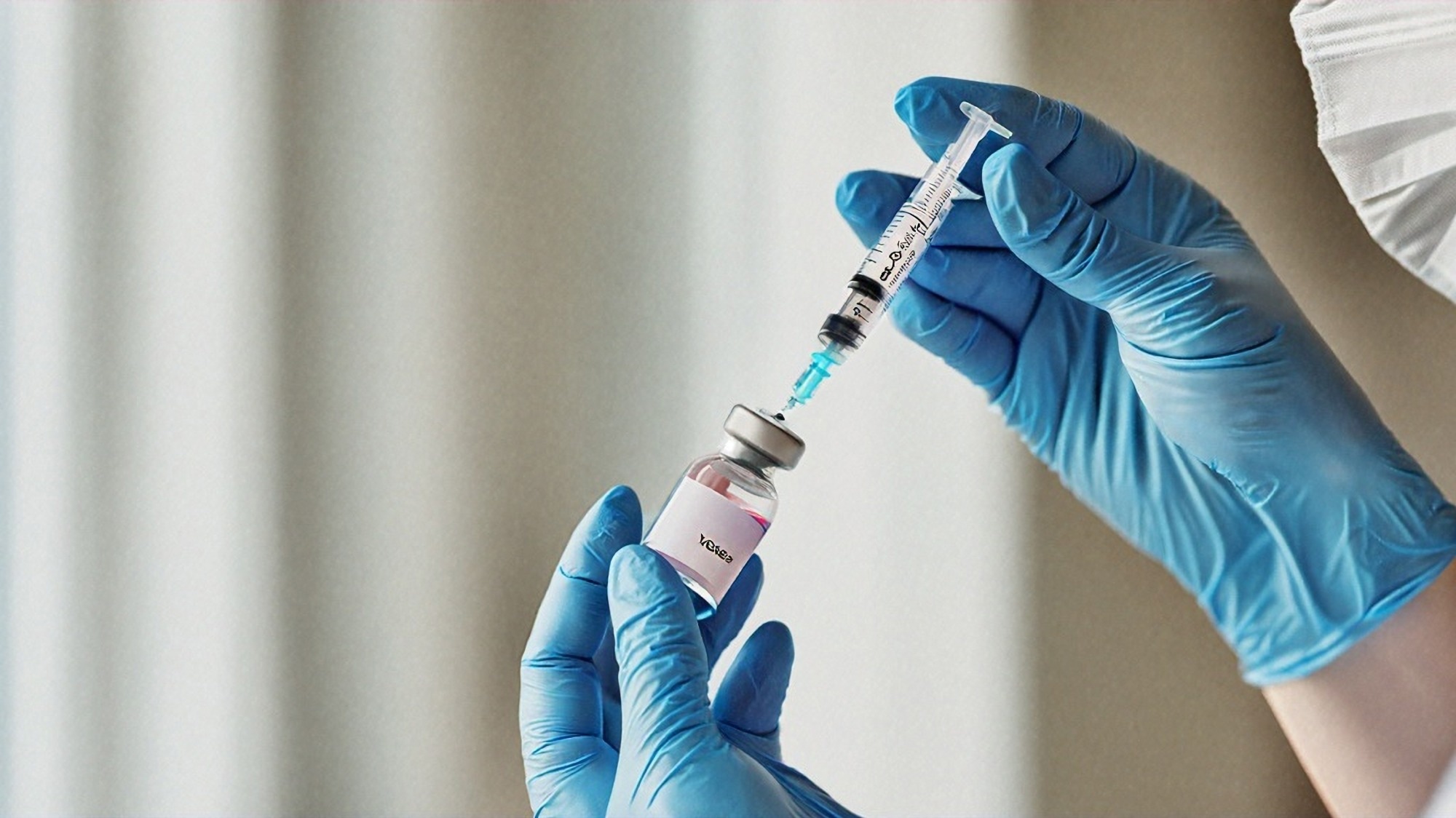The study highlights the importance of strengthening trust in health communication from public sources such as the CDC and addressing the emotional impacts of loss.
 Study: Trust in the science behind COVID-19 vaccines as a driver of vaccine acceptance in the United States, 2021–2023. Image credit: Shutterstock AI / Shutterstock.com
Study: Trust in the science behind COVID-19 vaccines as a driver of vaccine acceptance in the United States, 2021–2023. Image credit: Shutterstock AI / Shutterstock.com
In a recent study published in Vaccine: X, Researchers investigate how public trust in the science behind coronavirus disease 2019 (COVID-19) vaccines has changed in the United States.
How misinformation affects getting the COVID-19 vaccine
Throughout the COVID-19 pandemic, the rapid development of vaccines has sparked widespread, often wild, discourse on their safety and efficacy, as well as public trust in science. Over time, public trust in science emerged as a critical factor influencing vaccine uptake and willingness to accept future vaccine promoters.
Losing a close friend or family member to COVID-19 is an important factor influencing trust in science and acceptance of vaccines, as several reports have shown how this type of loss can significantly decrease or increase paradoxical faith in vaccines and scientific institutions. This dichotomy highlights the deeply personal and complex nature of faith.
Analyzing changes over time in public trust can allow for more sophisticated communication to increase vaccine coverage and rebuild trust.
About the study
In the current study, the researchers assess changes in public trust in the science behind the COVID-19 vaccines. Adult residents of the United States were recruited. Stratified random sampling was used to ensure adequate representation of demographic groups.
Five strata were created for gender, age, ethnicity/race, education level, and statistical regions. The surveys were administered between 2021 and 2023 as part of another study to explore the determinants of COVID-19 vaccine acceptance in 23 countries.
Several survey items were analyzed, including age, education, gender, income, ethnicity/race, statistical region, vaccination, loss of a friend or family member to COVID-19, trust in the Centers for Disease Control and Prevention Centers for Disease Control and Prevention (CDC) as a source of vaccine information and confidence in the science of COVID-19 vaccines.
Sociodemographic and pandemic-related correlates of trust in science were also assessed using weighted logistic regression models. Weighted logistic regression analysis was also used to investigate associations between trust in science, vaccine acceptance, and future willingness to accept boosters.
Confidence in the science behind vaccines was measured and compared throughout the study period. Likewise, trust in the CDC as an information source was examined as an independent correlate on a 10-point scale.
Study findings
Within the study group, 50.9% of respondents were female and 35.7% were university graduates in 2023. Over 36% of respondents had incomes below or above the national average, while 20.7% had no income. About 32% of respondents reported losing a close friend or family member due to COVID-19, 10.8% of whom reported the loss in the past year.
Confidence in the science of COVID-19 vaccines was reported by 63.9%, 67.2%, and 63.8% of respondents in 2021, 2022, and 2023, respectively. These changes in annual confidence ratings were not significant.
Confidence in science was significantly higher among men, those with above-average incomes and university graduates in 2023; however, belief in science was not significantly related to ethnicity/race or age. Trust in science was significantly higher among individuals with a COVID-19-related loss within the past year or more than one year ago than among individuals without a loss.
Vaccine acceptance was reported by 83% of study participants in 2023. Over 72% of vaccinated individuals expressed willingness to receive boosters in the future. Vaccine acceptance was consistently higher at 89% among individuals with a COVID-19-related loss of a friend or family member. In comparison, individuals without a personal loss had lower acceptance rates, particularly in 2021; however, acceptance increased over time to 80% in 2023.
Trust in the CDC as a source of information was significantly associated with vaccine uptake; however, this was not a factor when adjusting for belief in vaccine science. However, trust in the CDC as an information source was significantly related to willingness to accept future incentives, even after adjusting for trust in science.
conclusions
Although slight fluctuations were observed in respondents’ confidence in the science behind the COVID-19 vaccines, overall confidence was lower than previously reported global averages.
Respondents with greater faith in science were more likely to accept the vaccine and receive boosters; however, one third of the study group did not share this belief. Individuals with higher incomes, males, and college graduates were significantly more likely to trust vaccine science. Personal loss of friends or family to COVID-19 is associated with trust in science and, to a lesser extent, vaccine acceptance.
Taken together, the study’s findings highlight the importance of fostering scientific literacy, particularly in less affluent and younger age groups. Additionally, trust in health communications from public sources such as the CDC must be strengthened to increase and maintain public confidence in vaccination programs.
Journal reference:
- White, TM, Wyka, K., Rabin, K. &, El-Mohandes A. (2024). Trust in the science behind COVID-19 vaccines as a driver of vaccine acceptance in the United States, 2021–2023. Vaccine: X. doi:10.1016/j.jvacx.2024.100576
